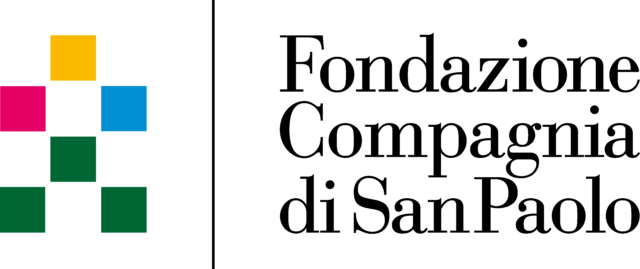
ERNOP AGAPE – A Gathering of Academic Research Centres on Philanthropy in Europe 2022
22 September 2022 @ 08:00 - 17:00
- Past event
ERNOP AGAPE – A Gathering of Academic Research Centres on Philanthropy in Europe 2022
Exploring a COST Action Proposal on European Philanthropy
Programme
9:00-9:15 | Welcome and introduction to the workshop: ERNOP and AGAPE – Looking back and looking ahead
9:15-9:30 | Scene setting: COST Action
- What is a COST Action?
- What do COST Actions cover and what is excluded?
- What do they offer for the philanthropy research landscape?
- What do we need to take into account in considering one?
9:30-11:00 | Stage 1 – IDEAS
Building on the idea of philanthropy as the use of private resources – time, treasure, talent, ties – for public purposes, and, combining this with the idea of theatre as representing the cast and context of philanthropy, participants will collaborate in one of four working groups to explore:
- What is the state of the art in relation to your theme (what do we know)?
- What are the research question(s) you propose to address under your theme?
- What is the relevance and timeliness of the challenge(s) that you have identified?
- How do you propose to approach the challenge(s)? What is innovative about this approach? How will it advance the art in the field?
- What does it offer in relation to former/existing efforts in the area (e.g. research projects, other networks, etc.) at the European and/or international level)?
- Using SMART principles (Specific, Measurable, Achievable, Relevant and Timely) describe clear and ambitious research coordination and capacity-building objectives in relation to the challenge(s) that you propose to address*.
Group 1 – Time & Treasure (chaired by René Bekkers)
Group 2 – Talent – (chaired by Georg Mildenberger and Michaela Neumayr)
Group 3 – Ties – (chaired by Arthur Gautier)
Group 4 – Theatre – (chaired by Tobias Jung)
11:00-11:30 | Coffee Break
11:30-12:30 | Stage 2 – TEAMS 2
Building on the discussion in Stage 1, working groups will discuss and design answers to the following questions:
- Who are the key stakeholders in relation to your proposed challenge(s)? Why?
- Where are the key stakeholders placed? What do they offer/need? How will you involve, access, and engage with them?
- What other expertise is needed? Where can you find that? How can and will you incorporate that?
- What gaps remain? How will you overcome those?
12:30-13:30 | Lunch Break
13:30-14:45 | Stage 3 – IMPACT
Drawing together the insights from the discussions in the morning, working groups will focus on questions of impact:
- What is the relevant and realistic impact envisaged by your proposal in the short-, medium-, and long-term? For whom?
- How are you going to address and contribute to knowledge creation, transfer of knowledge and career development?
- How are you going to disseminate and/or use the results? How are you going to achieve this? How does it contribute to dialogue between science and the general public and/or policy?
- What are the main risks related to your workplan? What is a credible contingency plan that will appropriately ensure the
achievement of your objectives?
14:45-16:00 Stage 4 – Joining things up
Groups will present their proposals, provide mutual critically reflective feedback, and collectively develop the overarching narrative, timeline and resource requirements.
16:00-16:30 Coffee Break
16:30-17:00 AGAPE 2023 – What would we like to explore?
Closing remarks
Illustrative examples provided by COST include Examples of Research Coordination Objectives:
- development of a common understanding/definition of the subject matter;
- coordination of information seeking, identification, collection and/or data curation;
- coordination of experimentation or testing;
- comparison and/or performance assessment of theory/ model/ scenario/ projection/simulation/narrative/ methodology/ technology/ technique;
- development of knowledge needing international coordination: new or improved theory/model/scenario/ projection/ simulation/ narrative/ methodology/technology/ technique;
- achievement of a specific tangible output that cannot be achieved without international coordination (e.g. due to practical issues such as database availability, language barriers,
- availability of infrastructure or know-how, etc.);
- input to stakeholders (e.g. standardization body, policy-makers, regulators, users) – excluding commercial applications;
- input for future market applications (including cooperation with private enterprises);
- dissemination of research results to the general public or to stakeholders.
Examples of Capacity-building Objectives:
- fostering knowledge exchange and the development of a joint research agenda around a topic of scientific and/or socio-economic relevance;
- fostering knowledge exchange and the development of a joint research agenda around a new or emerging field of research;
- bridging separate fields of science/disciplines to achieve breakthroughs that requires an interdisciplinary approach;
- acting as a stakeholder platform or trans-national practice community (by area of socio- economic application and/or market sector);
- involving specific target groups (e.g. newly established research groups, Young Researchers and Innovators, the under-represented gender, teams from countries/regions with less capacity in the field of the Action).


